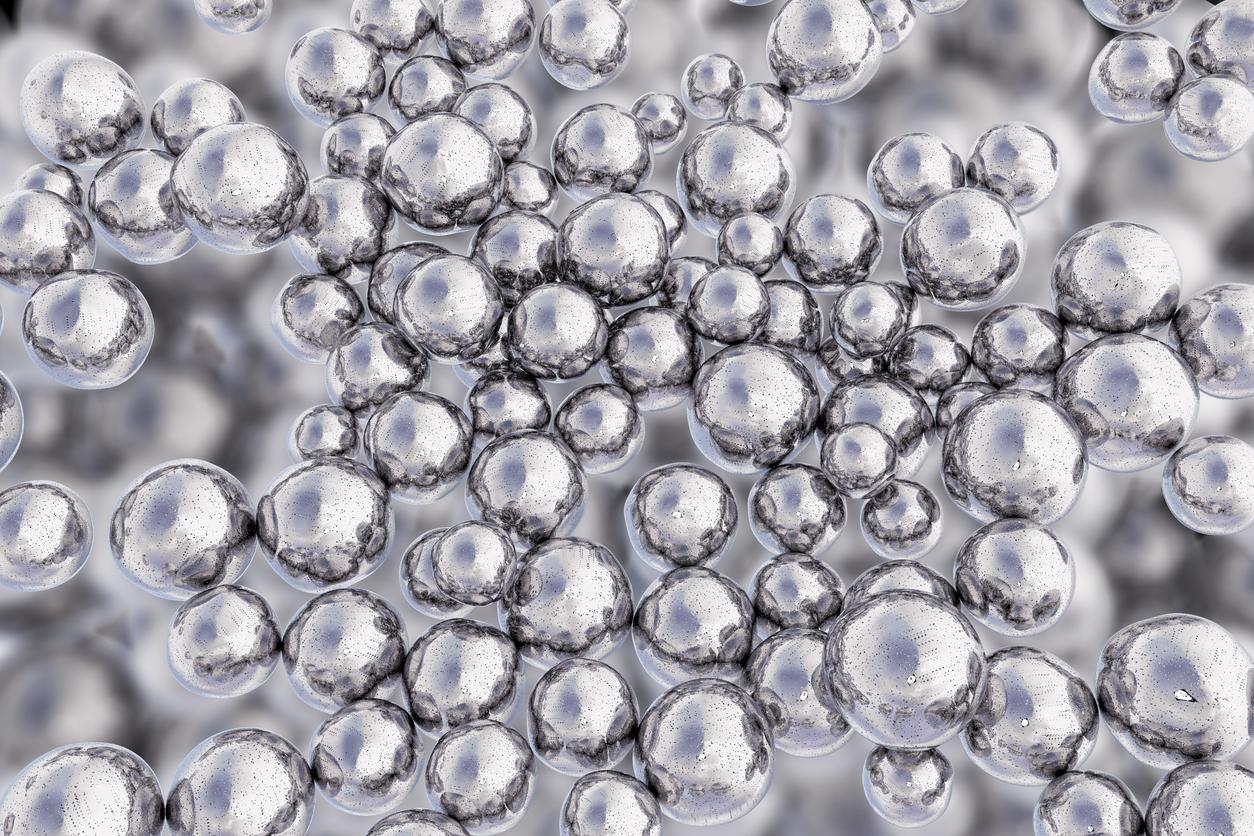Several metal oxide nanoparticles that can be found in dyes and anti-caking agents, commonly used in the food industry, could damage the intestine, according to a team of American researchers.

- Some nanoparticles – titanium dioxide and silicon dioxide – commonly used in the food industry can harm the gut.
- Iron oxide nanoparticles (called E172 when used as a food coloring) also appear to alter bowel function and overall health.
- Conversely, zinc oxide nanoparticles do not seem to pose any problems for intestinal health, on the contrary, they would help the intestine to compensate for the damage suffered.
Certain nanoparticles present in common food colorings and anti-caking agents could damage the intestine, warn a team of researchers from Cornell and Binghamton universities, in the State of New York in the United States. According to the results of their work, published in the journal Antioxidants on February 9, 2023, metal oxide particles could disrupt gut health.
“We consume these nanoparticles on a daily basis”
“We consume these nanoparticles on a daily basissays lead author Elad Tako, professor of food science at Cornell University, in a university statement. We don’t really know how much we consume; we don’t really know the long-term effects. But, here we were able to demonstrate some of these effects on gastrointestinal health.”
Some time earlier, Binghamton researchers had conducted in vitro cell analyzes and examined different nanoparticles frequently used by the food and pharmaceutical industries. The group then focused specifically on metal oxide nanoparticles and confirmed appropriate test dosages that are suitable for human consumption.
Working with Cornell researchers, the study authors used human-appropriate doses of titanium dioxide and silicon dioxide in Professor Tako’s lab. They injected the nanoparticles into chicken eggs. After they hatched, scientists identified changes in functional, structural and microbial markers in their blood, duodenum (upper intestine) and cecum (a pouch that connects the small and large intestines).
Food: should these substances be banned?
“We have discovered that specific nanoparticles – titanium dioxide and silicon dioxide – commonly used in food can negatively affect the functionality of the intestine. They have a negative effect on the main digestive and absorptive proteins”reports Elad Tako
The group also looked at zinc oxide, a micronutrient, and iron oxide, an iron-fortification supplement, to see their effects on the gut. The team found that the zinc oxide nanoparticles did not cause problems for gut health, on the contrary, they helped the gut to compensate for the damage suffered. Conversely, iron oxide nanoparticles (called E172 when used as a food coloring) appear to alter bowel function and overall health. So while iron oxide may be a viable option for boosting iron intake from the diet, it appears to be not a healthy method of maintaining gut integrity and iron oxide zinc would be a better alternative for this.
Despite these findings, the research team does not believe it is time to completely ban their use. More research is needed to justify this decision and to develop healthier, more cost-effective, and more sustainable alternatives.















